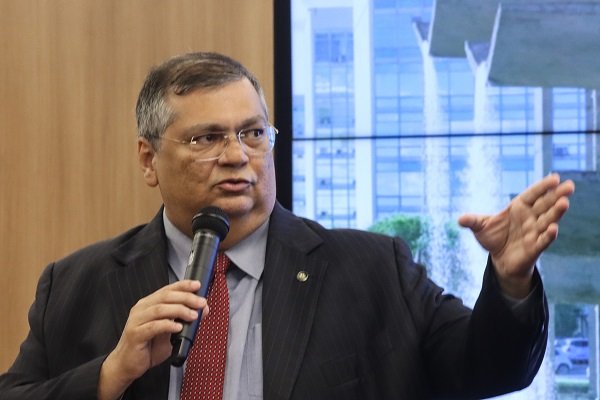Justice Minister Flávio Dino announced on Monday (02/10) an investment of R$900 million in the new national program to combat criminal organizations. The initiative will involve departments of the Ministry and the participation of the Federal Police and the Federal Highway Police. The National Program to Combat Criminal Organizations (Enfoc) is one of the federal government’s responses to the wave of violence across the country, especially in the states of Rio de Janeiro and Bahia.
Gradual Start
The initiative will be implemented gradually until 2026. There will be five areas of action: Institutional and informational integration; Increased efficiency of police bodies; Ports, airports, borders and currencies; Increased efficiency of the Criminal Justice system; and Cooperation between entities. The measures will be adopted in three cycles: 1st: between 2023 and 2024; 2nd: between 2024 and 2025 and 3rd: between 2025 and 2026. In general terms, the Enfoc axes should include actions to improve the intelligence system, creation of asset recovery units and an integrated action plan for border areas.
Coping with Structural Problems
Enfoc will be developed through actions over the next three years. The objective, according to the ministry, is to address structural problems such as vulnerability of borders and currencies, transnationality of crime, deficiency in asset recovery, low integration, and structural deficiency of the police.
Bahia and Rio de Janeiro
Also on Monday, the government announced specific actions for two states facing recent waves of violence: Bahia, where four men died in a clash with the police in Santo Amaro, in Recôncavo, last Friday (29/09), and where, in September, there were 68 deaths also in fights against the police – including four officers.
The other state that should receive special attention is Rio de Janeiro, which is experiencing successive security crises. Recently, police found, in Maré Complex, North Zone, a training center for drug traffickers to develop guerrilla techniques. On top of that, four doctors were shot, three died, while having some drinks at a bar on the beachfront of Barra da Tijuca neighborhood, West Zone. Investigators believe that one of the doctors was mistaken by a militiaman who lives in that same area. Apparently, the attack was carried out by drug traffickers connected to the second largest gang in Brazil, the Red Command, which is fighting the militia for territory in the West Zone. The war broke out in January and until now continues to spread victims.
The doctors were from São Paulo and came to Rio to take part in an international medical congress in.
Violence in the States
At the ceremony, the Minister of Justice, Flávio Dino, also signed an ordinance authorizing a transfer of R$20 million to the state of Bahia. The money should be used to strengthen state public security institutions. The state has faced a rise in crime in recent months. At least 68 people died in police clashes in Bahia in September alone.
National Force in Rio
In addition to the transfer, Dino also signed an authorization form to send National Force agents to Rio de Janeiro. The reinforcement had been requested by the governor of Rio, Cláudio Castro (PL), on Friday (29). Castro has drawn up strategies with the Rio de Janeiro public security team to combat organized crime in Complexo da Maré, in the North Zone of the capital.
Planning
When presenting the program, the director of Integrated Operations and Intelligence, Romano Costa, stated that details of the program’s actions will be presented within 60 days.
Analysis:
In Brazil, constitutionally, states are responsible for security policy, and the central authorities have always used this as a reason not to take any action. But the federal government has an important role, which is coordination. However, experts are skeptical about the emergency measures announced so far by the federal and state governments to combat violence in Rio and Bahia. This is because actions such as the support of the National Force and the sending of vehicles to the state do not represent new developments in security policy, repeating what has already been done in other critical moments. In this sense, the priorities presented by the Ministry of Justice in the National Program for Combating Criminal Organizations (Enfoc), which aim to strengthen criminal investigation, intelligence activity and the systemic confrontation of criminal organizations, are more structuring, with a long-term impac. in the country. The plan to expand coordination between federal and state intelligence agencies is positive. However, in general, there is a lack of clarity in the objectives of the request for enhanced security made by the State to the Union.




